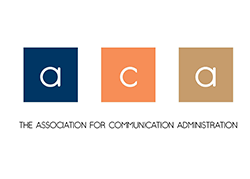Abstract
This article addresses the question of what constitutional constraints govern the lives of academic theatre teacher/directors in the U.S. by highlight the case of the Southwest Missouri State University's theatre program. Although theatre artists and teachers seldom settle their controversies in the courts, the courts have established a body of judicial doctrine that is relevant to the administrator of academic theatre. Questions such as what should drama teachers, directors and administrators know about the legal limits of their freedom of expression? Conversely, what are the limitations imposed by the courts on administrative officials regarding their ability to control or regulate what theatre students and teachers do? The answers to these questions are derived from case law that suffers from two limitations worth noting at the outset. In the first place, most of the cases that reach the courts concern high schools more so than colleges. Even in the most recent landmark decision regarding student free expression, the Supreme Court expressly declined to extend its judgment to colleges. It is not surprising that high school principals are more anxious to regulate controversy than college presidents, at least insofar as public schools are concerned. More will be said regarding this distinction in the conclusion.
Recommended Citation
Frank, B. (1993). After Hazelwood: Free speech constraints and theatre programs. Journal of the Association for Communication Administration, 22(2), 17–21.


